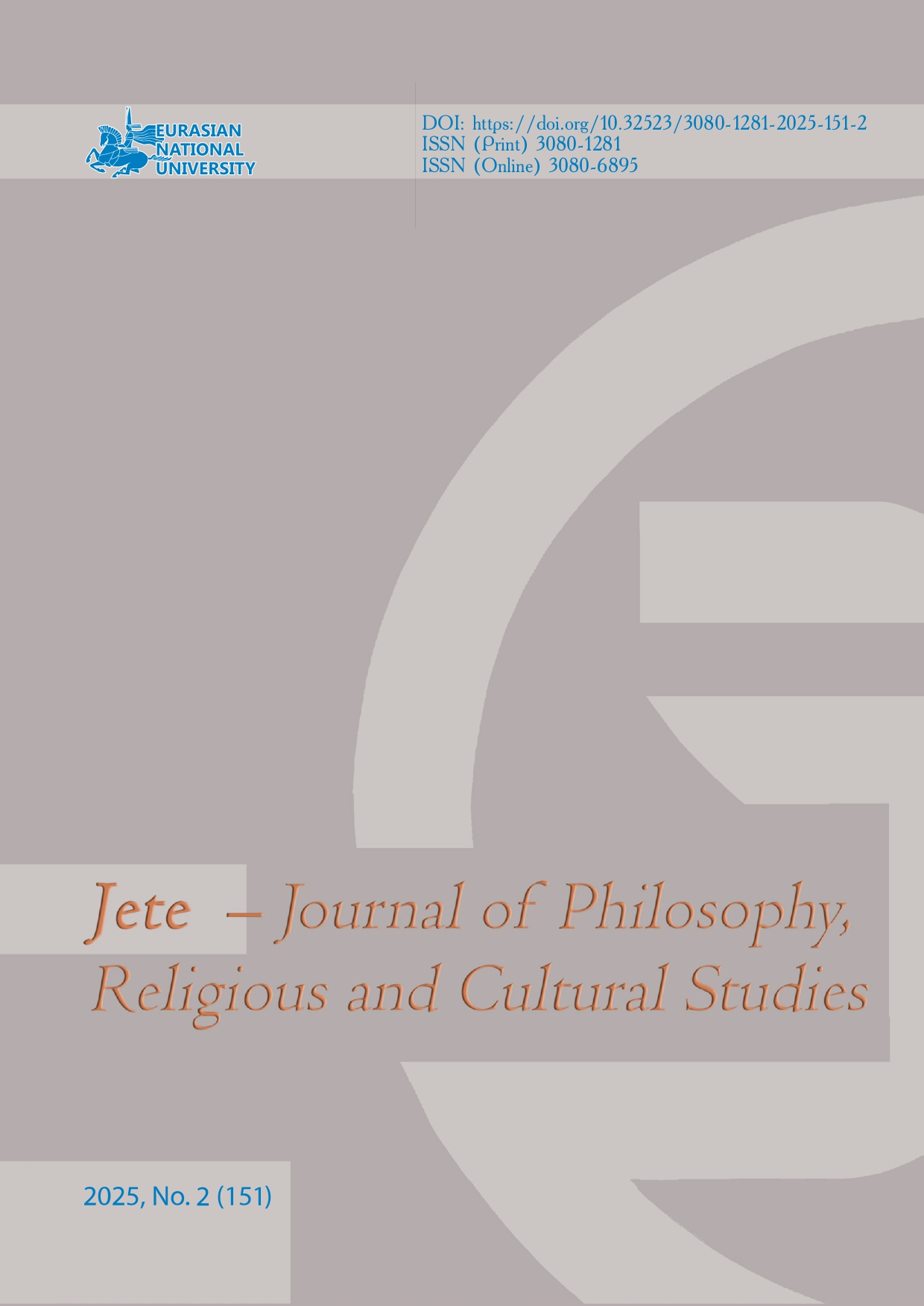An islamic theologian of the kazakh steppe and his religious legacy
Scientific article
Views: 138 / PDF downloads: 92DOI:
https://doi.org/10.32523/3080-1281-2025-151-2-126-138Keywords:
Ahmad al-Zhandi; Islamic theology; religious education; Maturidi creed; medieval Islam; history of Islam in Kazakhstan; religious heritageAbstract
This article explores the life and theological legacy of Ahmad al-Zhandi, a prominent medieval Islamic scholar who lived in the Kazakh steppe. His religious-legal (fiqh) and doctrinal (Aqeedah) contributions are examined, with a focus on his impact on the Islamic education system in the region. As a representative of the Maturidi school, al-Zhandi played a key role in interpreting and systematizing Islamic creed. The paper provides a content analysis of his major works, highlighting their connection to classical Islamic thought and their relevance in modern Kazakhstan. The level of scholarly attention his works have received in Kazakhstani Islamic studies is assessed, and suggestions are made for future research directions. Ahmad al-Zhandi's legacy remains significant in preserving traditional Islamic values, fostering religious enlightenment, and countering religious extremism. His works require further, in-depth academic investigation.
Downloads
References
Derbisali, A. (2000). The History of Islam in Kazakhstan. Almaty: Dauir.
Nurtazina, R. (2004). The Development of Islamic Culture in Kazakhstan. Almaty: Gylym.
Akimkhanov, A. B., Frolov, A. A., Adilbaeyva, S. A., & Yerzhan, K. (2016). Principles of Abu Mansur al-Maturidi, Central Asian Islamic theologian preoccupied with the question of the relation between the iman/credo and the action in Islam. European Journal of Science and Theology, 12(6), 165–176.
Ali-Zade, A. A. (2010). Encyclopedia of Islam. Moscow: Vostochnaya Literatura.
Akhmetzhanova, G. (2021). The Formation and Development of Islamic Studies in Kazakhstan. Nur-Sultan: Institute of Scientific Research, Ministry of Education and Science of Kazakhstan.
Al-Nasafi, A. H. (2005). Al-Aqida an-Nasafiyya (The Foundations of Islamic Belief). Cairo: Al-Azhar Press.
Bekenov, T. (2017). Ahmad al-Jundi and Research on His Works. Almaty: Iman.
Çelebi, İ. (1998–1999). Klasik Bir Kelâm Problemi: Hüsün-Kubuh [A Classical Kalām Problem: Husn and Qubh]. Marmara Üniversitesi İlahiyat Fakültesi Dergisi, (16–17), 55–90.
Çelebi, İ. (1999). Hüsün ve Kubuh [Good and Evil]. İslam Ansiklopedisi, 19, 59–63.
Dossa, S. (2002). Islam and the West: The Morality and Political Economy of Islamic Reform. Canadian Review of Sociology, 39(4), 541–550.
Knysh, A. (2015). Sufism: A New History of Islamic Mysticism. Princeton: Princeton University Press.
Maturidi, A. M. (2003). Kitab at-Tawhid. Beirut: Dar al-Kutub al-Ilmiyyah.
Nasr, S. H. (2006). Islamic Science: An Illustrated Study. Bloomington: World Wisdom.
Suleimenov, A., & Absattarov, B. (2018). Islam and Traditional Values. Almaty: Kazakh University.
Zaripkhan, A. (2019). The Influence of Maturidi Aqida in Kazakhstan. Astana: Nur-Mubarak Publishing.
Downloads
Published
Issue
Section
License
Copyright (c) 2025 Ардак Оразбаев, Ченгиз Томар (Автор)

This work is licensed under a Creative Commons Attribution-NonCommercial-NoDerivatives 4.0 International License.













